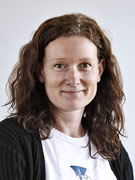|
|
Lego and RobotsWednesday 1st February 2017, 6:30 pm. Speakers: Fiona McNeill and Katrin Lohan (Heriot-Watt University) Venue: Z1-10, Saughton House, Broomhouse Drive, Edinburgh, EH11 3XD - map. This event is free of charge and open to all. Booking required though ... Refreshments and networking from 6:00 pm. This meeting is supported by The Scottish Government. SynopsisPart 1The BCS has been a strong supporter of Lambda Jam and the RSE Young Academy of Scotland's attempts to spread the joy of computing through FIRST LEGO League Scotland. The internationally popular programme was brought to Scotland in 2013 and for the past four years has had a massive impact on over 2000 children, who have progressed to design, build, and program robots to climb walls and throw balls. It offers a holistic approach to learning computing and is more than just robots -- participants also research problems and invent solutions to real-world issues such as using technology in education and helping communities recover from natural disasters. This wide remit attracts a broad group of late-primary / early-secondary school age, including 40% from lower-income areas, and 35% female. We target these social groups specially, and with great success: 82% report more interest in engineering and computing. Interestingly, 50% report it as "difficult" but it is clearly a good difficult, as 97% of these respondents also reported FLL as fun. Relishing such challenges is why we went in to computing, and likely most of the BCS feel the same. We aim to develop this mindset in Scotland's young people, giving them space and support to try, fail, improve, and succeed. Come along and learn more about FLL Scotland and how the BCS can continue to help. Part 2Human-robot collaborations are becoming prevalent and it is expected that 1 in 10 American households will own a robot by 2020, which will create opportunities for human-robot collaboration in a home environment (e.g. cooking together, cleaning, online shopping). Robots and humans need to communicate through natural interaction, which is the most common way of human-human communication. In the field of Developmental/ Cognitive robotics we study the developmental mechanisms, architectures and constraints that allow lifelong and open-end learning of new skills and new knowledge in embodied machines. As in human children, learning is expected to be accumulative and of a progressively increasing complexity, and to result from self-exploration of the world in combination with social interaction. Studying social interactions like tutoring situations between parents and their children helps to create understanding of — how to make a robot learner able to derive it’s knowledge from an untrained (naive) user’s demonstration. This is achieved by using methodological approaches and theories derived from developmental psychology, neuroscience, developmental and evolutionary biology, and linguistics to study social interactions. About the speakers
|

